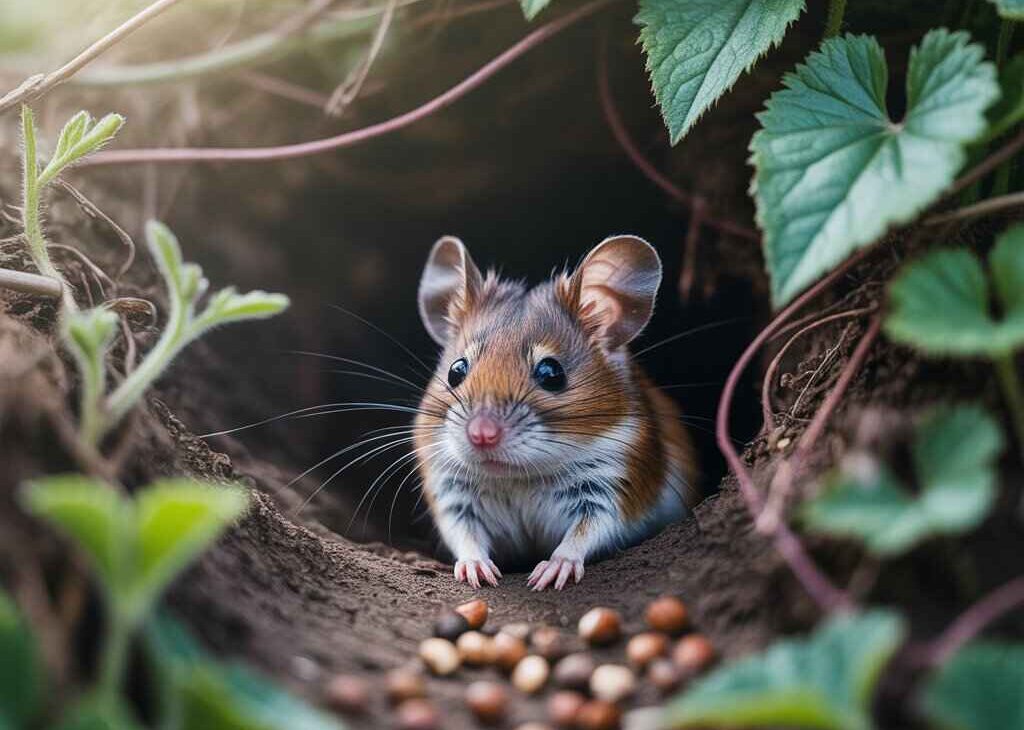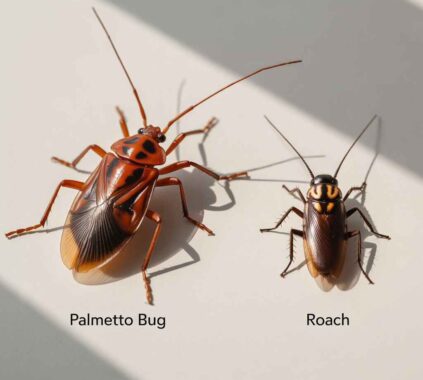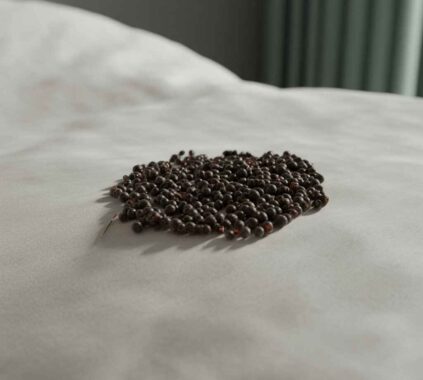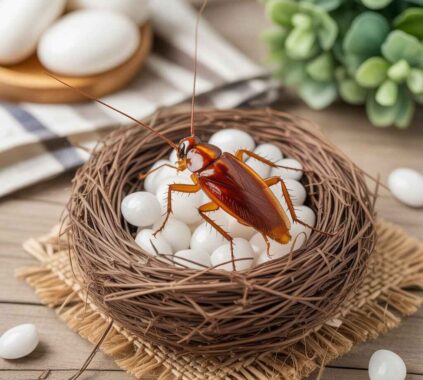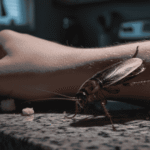Table of Contents
Voles are often misunderstood little creatures that can cause serious issues for your home and garden. If you’ve noticed small, round rodents digging tunnels in your yard or nibbling at your plants, it might be time to ask: are voles dangerous? In this article, we’ll explore the risks voles pose to humans, pets, and your garden, and how to safely deal with these critters.
Are Voles Dangerous to Humans? Understanding the Risks
While voles aren’t typically aggressive toward humans, they can still present some risks. Voles are not venomous or poisonous, but they can carry diseases that could impact your health. Tularemia and Hantavirus are two major diseases associated with voles. Both can be transmitted through contact with their bodily fluids, feces, or urine, or through the inhalation of particles from contaminated areas.
Though it is unlikely for voles to bite humans, it’s still important to avoid direct contact with these rodents or their nests. If you have voles in your yard, there is a higher chance of exposure to disease-carrying parasites, including fleas and ticks.
Tip: Use protective gloves when handling plants or soil in areas where voles have been active.
For more information on diseases that voles can carry, visit the CDC’s page on Tularemia.
Are Voles Dangerous to Cats? Protecting Your Pets
If you have a cat, you might wonder if voles pose any threat to your furry friend. Voles aren’t aggressive toward cats, but they can still be harmful. Cats are natural hunters, and they may chase and try to catch voles in your yard. While the vole itself is not dangerous, the real risk comes from the parasites that voles often carry.
Voles can be carriers of fleas, ticks, and mites, which can easily be passed to your cat if they catch or even just come into contact with a vole. These parasites can lead to skin irritations, infections, and diseases like Lyme disease. Additionally, as mentioned earlier, voles can carry diseases like tularemia, which could affect your cat.
Tip: Keep your cat up-to-date with flea and tick preventatives, especially if you live in an area with high vole activity. Learn more about keeping your pet safe from pests here.
Are Voles Dangerous to Eat? Is It Safe for Humans?
When it comes to eating voles, the short answer is: it’s not recommended. While voles are not poisonous or toxic in themselves, there are serious risks associated with eating them. As mentioned, voles can carry diseases like tularemia and Hantavirus, which can be transmitted through consumption.
Ingesting contaminated vole meat could lead to serious illnesses, including fever, swollen lymph nodes, or more severe respiratory issues, depending on the disease. For this reason, it’s best to avoid eating voles, especially when the risks of contracting diseases are high.
What to Do if You Accidentally Eat a Vole
If you have somehow consumed a vole, it’s essential to seek medical attention immediately. If you experience any symptoms such as fever, chills, or swollen glands, make sure to inform your doctor that you may have ingested a vole. Early treatment can help mitigate the spread of diseases.
Are Voles Dangerous in the Garden? The Impact on Your Plants
If you’re a gardener, you might be asking, are voles dangerous in the garden? The answer is yes. Voles can be a major nuisance in gardens. Their burrowing and gnawing habits can damage plants, especially the roots. They love eating plant roots, tree bark, and even bulbs, which can stunt the growth of your favorite plants or kill them entirely.
Voles are notorious for their love of young trees and vegetable crops. If left unchecked, their burrows can also disrupt the soil, making it difficult for plants to thrive. In short, voles can turn your beautiful garden into a patchy, damaged space.
Steps to Prevent Voles in Your Garden
- Protect Young Plants: Use wire mesh or plant guards around the base of young trees to prevent voles from gnawing on them.
- Trim Overgrown Vegetation: Since voles are attracted to overgrown areas, keeping your garden tidy can help discourage them from moving in.
- Use Natural Repellents: Some gardeners use peppermint oil or garlic to deter voles, but these methods work best for small infestations.
For more tips on keeping your garden safe from voles, visit Gardeners.com.
Are Voles Endangered? The Conservation Status of Voles
You may wonder, are voles endangered? The answer is that voles are not currently considered endangered. In fact, there are over 155 species of voles found across the world, and many of them thrive in various habitats such as fields, forests, and wetlands. However, like many other animals, voles can face threats from habitat destruction, pesticide use, and other environmental factors.
Although the majority of vole species are not endangered, it’s still important to monitor their populations and take steps to prevent habitat loss. Maintaining healthy ecosystems helps ensure that voles and other wildlife continue to thrive.
How to Get Rid of Voles: Effective Strategies for Your Yard
If voles are causing problems in your yard, you might be wondering, how to get rid of voles? There are several strategies you can use to tackle a vole infestation:
- Trapping: Setting traps is one of the most effective ways to remove voles. Snap traps and live traps can help you catch voles that are burrowing in your lawn or garden.
- Exclusion: Install wire mesh or hardware cloth around garden beds and vulnerable plants to prevent voles from getting to them.
- Natural Repellents: Some people use natural deterrents like garlic or coffee grounds to make the environment less appealing to voles.
- Professional Pest Control: If the infestation is large, consider calling a professional pest control service to handle the issue safely and effectively.
For more detailed instructions on getting rid of voles, visit Fox Pest Control.
What to Do if a Vole Bites You: First Aid and Prevention
Although vole bites are rare, they can happen if the vole feels threatened. If you do get bitten by a vole, it’s important to clean the wound thoroughly to prevent infection. Since voles can carry diseases, it’s also wise to monitor for any symptoms, such as fever or swelling, and seek medical attention if needed.
Tip: Always wear gloves when handling or removing voles or their burrows to reduce the risk of bites.
For more on first aid for animal bites, check out Healthline’s guide.
Are Voles Blind? Understanding Their Vision
One interesting fact about voles is that, yes, voles are partially blind. They have small, beady eyes that are often covered by their fur. Voles primarily rely on their sense of smell and touch to navigate their burrows and find food. Their poor vision is one of the reasons they prefer to stay underground in their complex tunnel systems.
Tip: Since voles rely on their senses of smell and hearing, using strong-scented repellents like peppermint oil can be an effective way to deter them.
Conclusion: Are Voles Dangerous and How to Stay Protected
In conclusion, while voles are not inherently dangerous, they can still cause significant problems in your yard, garden, and even for your pets. From spreading diseases like tularemia to damaging your plants, voles are more than just an annoyance.

